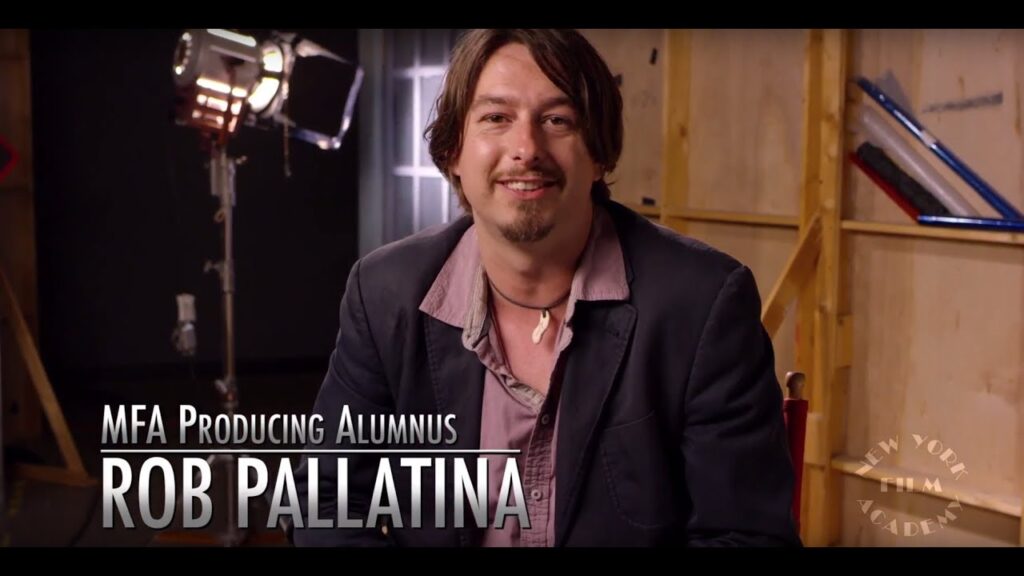Build Advanced Creative Producing Skills at NYFA
In NYFA’s Master’s of Fine Arts (MFA) Degree in Producing program, located at our Los Angeles campus, students master every step of the filmmaking production process. During their studies, students develop a number of skills in producing, learning to secure stories, deliver the pitch, develop scripts, talent search, schedule, as well as manage financing, marketing, and distribution. Throughout their time at NYFA, students learn advanced real-world strategies for successfully producing films and television shows, preparing them to fully support the artistic vision and impact of creative projects. After graduation, students may use their experience and training to pursue their goals in creative producing, production management, marketing, and distribution.
Faculty Highlights
Curriculum
The MFA curriculum at NYFA’s Producing School includes:
- An intense production schedule that brings students through the challenges of a producing role
- Classes and workshops designed to help students learn advanced creative and technical skills, such as Producer’s Craft, covering creative, production, and marketing, and distribution, as well as Entertainment Law and Business Practices and fundamental filmmaking courses
- Close instruction through a variety of teaching methods and immediate feedback from faculty and staff that are experienced producers who actively work in the industry
- Access to a robust equipment library that has cutting-edge cameras, dollies, light kits, sound equipment, and more
- Special guest lectures which may feature industry studio and independent Producers, as well as marketing executives, based on availability
- Internships for credit through an exclusive listing and instructor mentorship
To learn more about the MFA in producing programs, refer to NYFA’s Los Angeles Course Catalog or request more information.
NYFA’s MFA in Producing is a two-year, five-semester specialized degree that teaches students to develop their business acumen and foster their creative talents. The accelerated two-year program is possible by creating an extended academic schedule, allowing students to complete up to three full-length semesters in a calendar year.
At NYFA’s Producing School, students work on a range of creative projects to fully develop their production management skills. Students acquire advanced creative and technical know-how to develop, produce and deliver to audiences a variety of scripted, non-scripted, transmedia and promotional content. Students also complete thesis projects during the final two semesters and may participate in NYFA’s Producers PitchFest to pitch their thesis to industry professionals.
To see additional projects that MFA Producing students may complete, visit NYFA’s producing project page.
In addition to Producing classes, MFA students also take History and Theory courses designed to complement the Producing curriculum. Prospective MFA students can learn more about these requirements on NYFA’s History and Theory Courses page.
The producing program is offered at our Los Angeles campus, located in Burbank. At NYFA Los Angeles, students gain access to resources that include quality equipment, facilities, and crew, as well as the Universal Studios backlot, which is next door to the campus.
3300 W Riverside Drive
Burbank, CA 91505
Master of Fine Arts Degree in Producing
| Location | Program Start Date and End Date | Tuition |
|---|---|---|
| Los Angeles | January 12, 2026 – August 14, 2027 August, 2026 – April, 2028 | Spring 2026 Semester The program semesters tuition and duration is listed below. In addition to tuition please review the programs associated feesTuition:$22,076 Per Semester Program Fee:$1,343 Per Semester Program Duration: 5 SemestersFall 2026 Semester The program semesters tuition and duration is listed below. In addition to tuition please review the programs associated feesTuition:$20,500 Per Semester Program Fee:$1,500 Per Semester Program Duration: 5 Semesters |
*Additional Fees:
Spring 2026 – Summer 2027
| Technology Fee: | $80 Per Semester |
| Wellness Services & Programming Fee: | $145 Per Semester |
| Activity Fee: | $125 per semester |
| Orientation Fee: (Spring 2026: January 5th – January 9th) |
Domestic Students: $150 International Students: $200 |
| Graduation Fee: | $100 |
| International Student Fee: | $200 for the first semester, $120 each subsequent semester |
Please note: Equipment, curriculum, and projects are subject to change and may vary depending on location. Students should consult the most recently published campus catalog for the most up-to-date curriculum.




